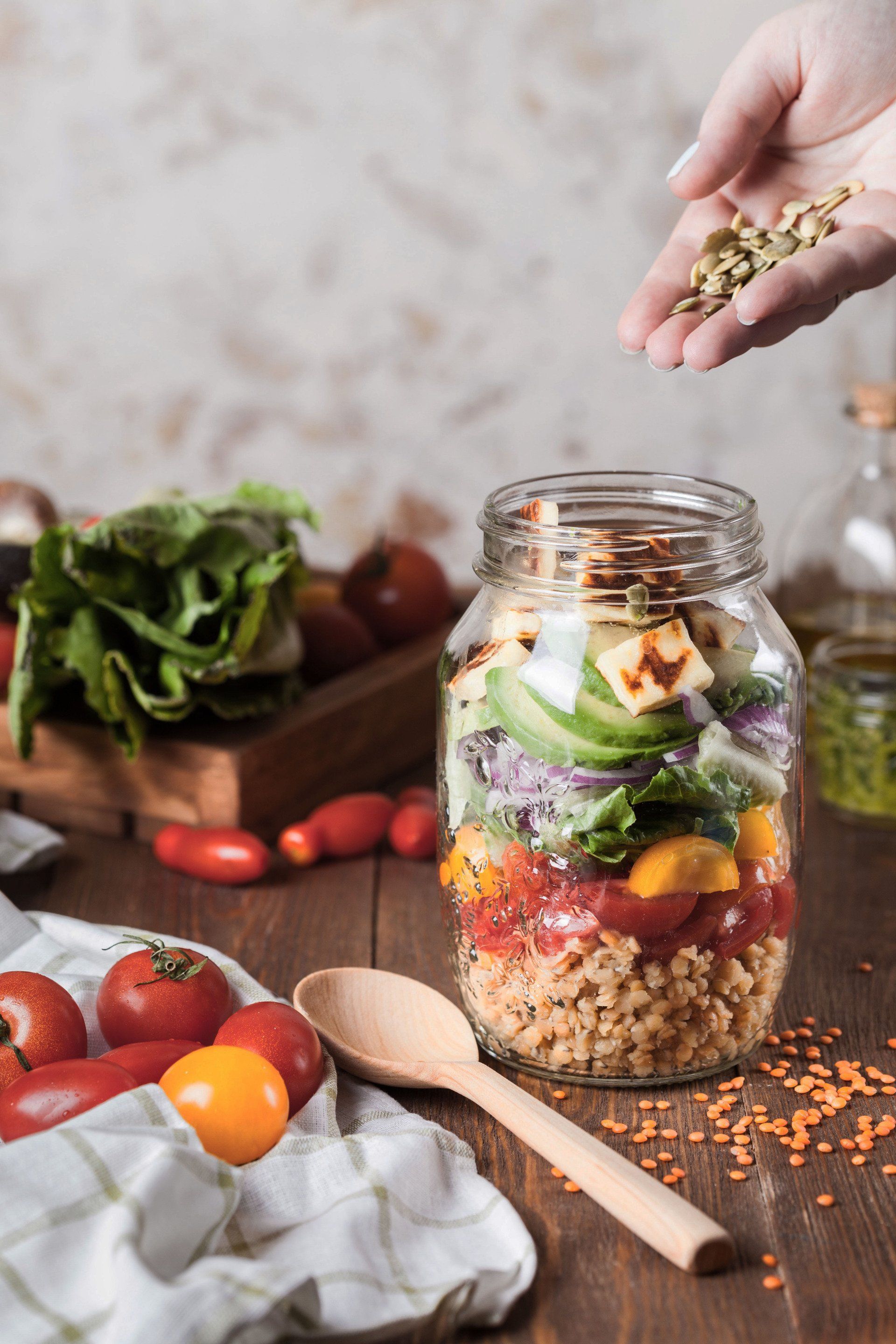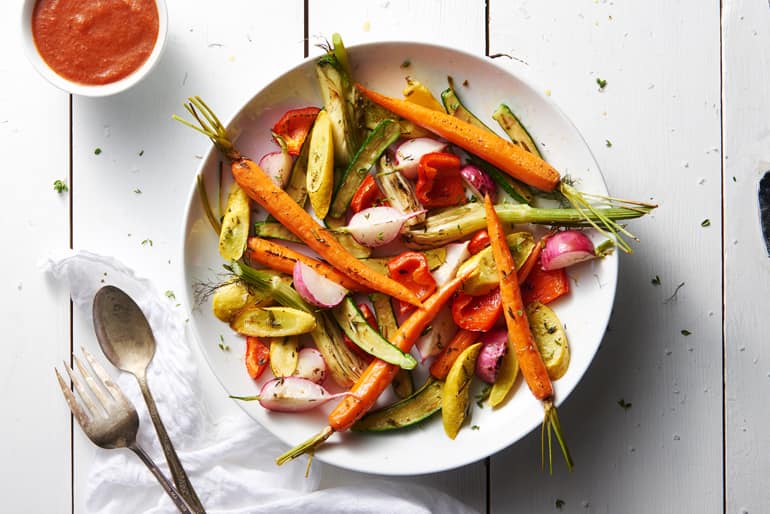Get the Dish on Plant-Based Eating
When a plant-based diet focuses on healthy, whole foods rather than processed products, it can be good for you and the planet. Whole plant foods are full of fiber and water, which fill you up without filling you out so you’re able to manage your weight. And focusing on plant-based foods, avoiding processed products and limiting refined sugars provides antioxidants and phytonutrients that help lower your blood pressure, along with your risk of heart disease, breast and colon cancers, stroke and diabetes. The healthy benefits extend to the health of the environment since eating plant-based foods reduces the impacts of climate change and cuts down on animal suffering.

The Recipe for Plant-Based Eating
So, what’s for dinner (and breakfast and lunch) on a plant-based diet? While fruits and veggies may immediately come to mind, they’re just the beginning of the endless choices when meat isn’t the main course. Plant-based eating stems from the following types of foods:
- Vegetables such as broccoli, spinach, potatoes, mushrooms and carrots.
- Fruits including apples, pears, berries, bananas, avocado and jackfruit.
- Whole grains like rice, whole wheat, quinoa, farro and amaranth.
- Legumes ranging from chickpeas and lentils, to edamame and peas.
- Nuts like walnuts, almonds, cashews and pistachios.
- Seeds such as chia, hemp, sunflower and flaxseeds.
- Soy from tofu, soybeans and tempeh.
- Plant-based dairy from almonds, soy, oats, coconut, cashews and hemp.
Be sure to always choose Certified Organic!

Branch Out to Get Enough Protein
The main concern about plant-based diets is that they don’t provide enough muscle-maintaining protein. But both nature and today’s grocery stores are full of plant-based products packed with protein, even if you’re a full-fledged vegan. Most veggies contain at least a few grams of protein, from mushrooms to broccoli and potatoes. The highest amount of plant-based protein is found in legumes like lentils and chickpeas, ancient grains like quinoa and farro, nuts like walnuts and almonds, and seeds such as chia and hemp. Meat substitutes like tempeh and seitan, along with plant-based organic protein powders and dairy products, can help you meet your protein needs every day.
Supplement Your Diet
While it’s easy to find delicious and nutritious plant-based foods, it can be hard to get certain nutrients when dairy, fish and meat are off the menu. To meet your nutrient needs, consider supplements. Start with a plant-based, organic protein powder—a sure way to increase your protein intake. Then incorporate a quality, whole food multivitamin to help close any nutrition gaps in your diet. Since iron is harder to absorb from plants than meat, consider an iron supplement, too. Vitamin B-12 is a must for healthy cells and while it’s abundant in animal products, it is found in few plant-based foods. Take a B-12 supplement or choose cereals and plant-based milks fortified with B-12. Omega-3 fatty acids are overflowing in fish, seafood and eggs, but it takes the body longer to convert omega-3 from plant-based sources like walnuts and flaxseeds. Add an omega-3 supplement to keep your brain and body at their best.
Whether you eliminate meat altogether or keep it a mealtime mainstay, try incorporating more wholesome, plant-based foods to sow the seeds of better health!

Garden of Life is a company on a mission to Empower Extraordinary Health as they continue to bring to market the most innovative Certified USDA Organic and Non- GMO Project Verified foods and supplements without compromise.










